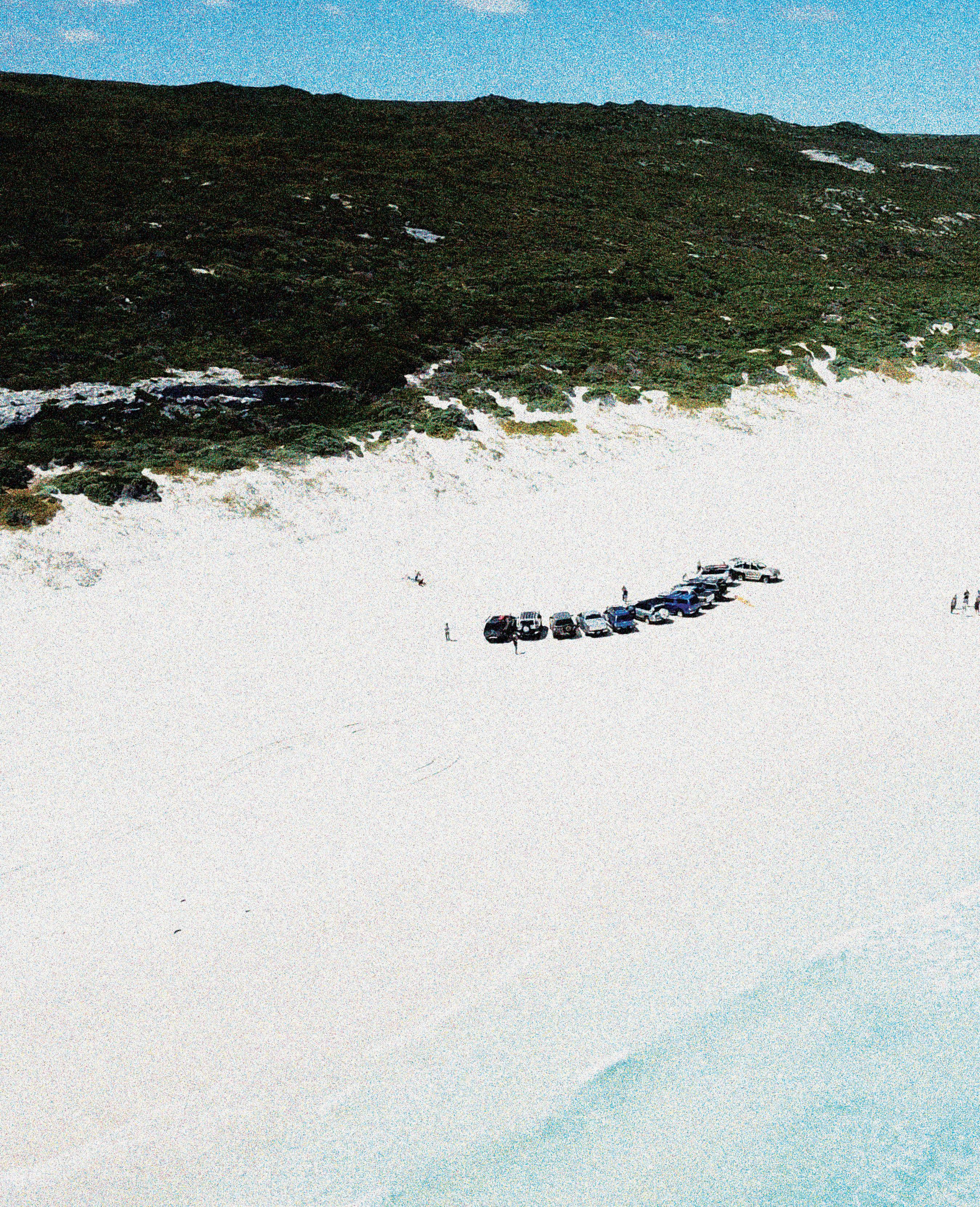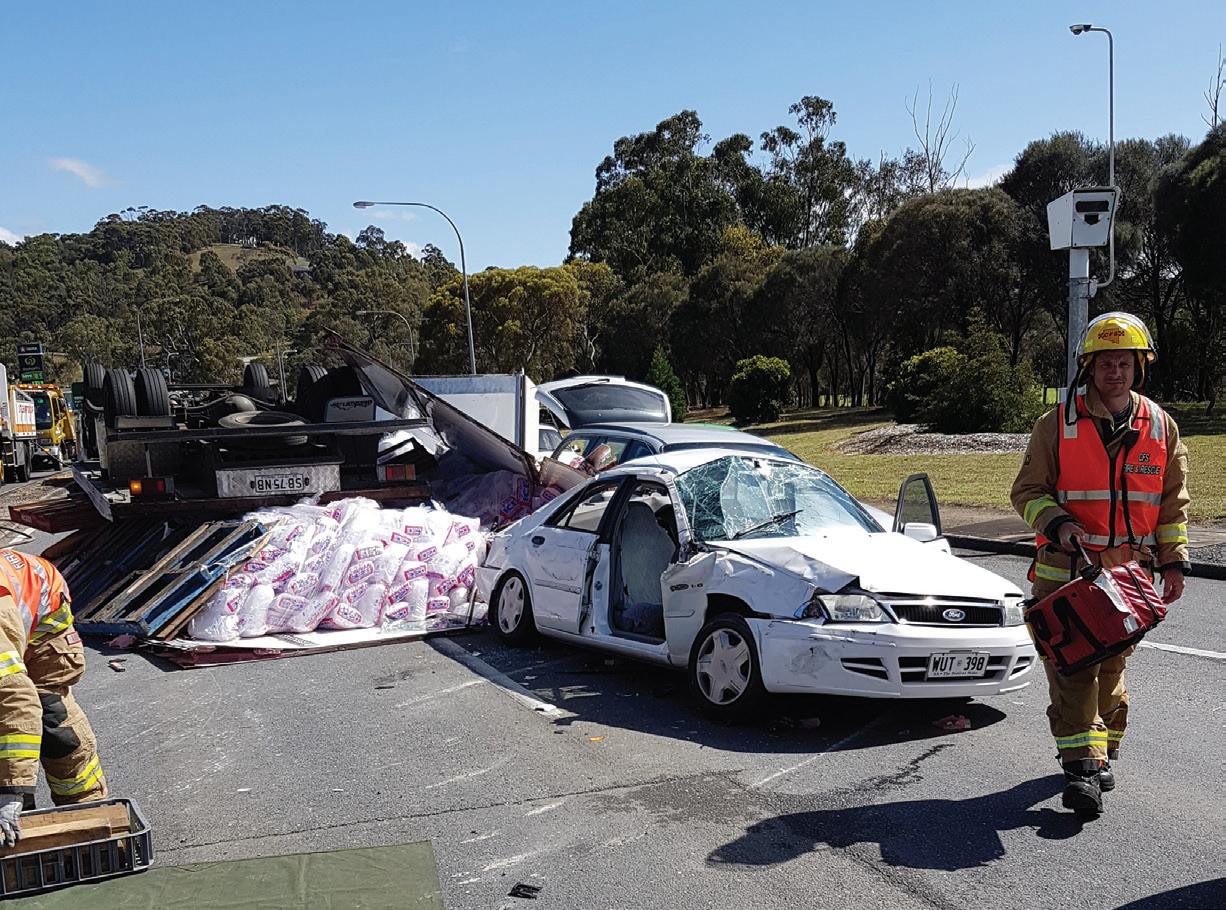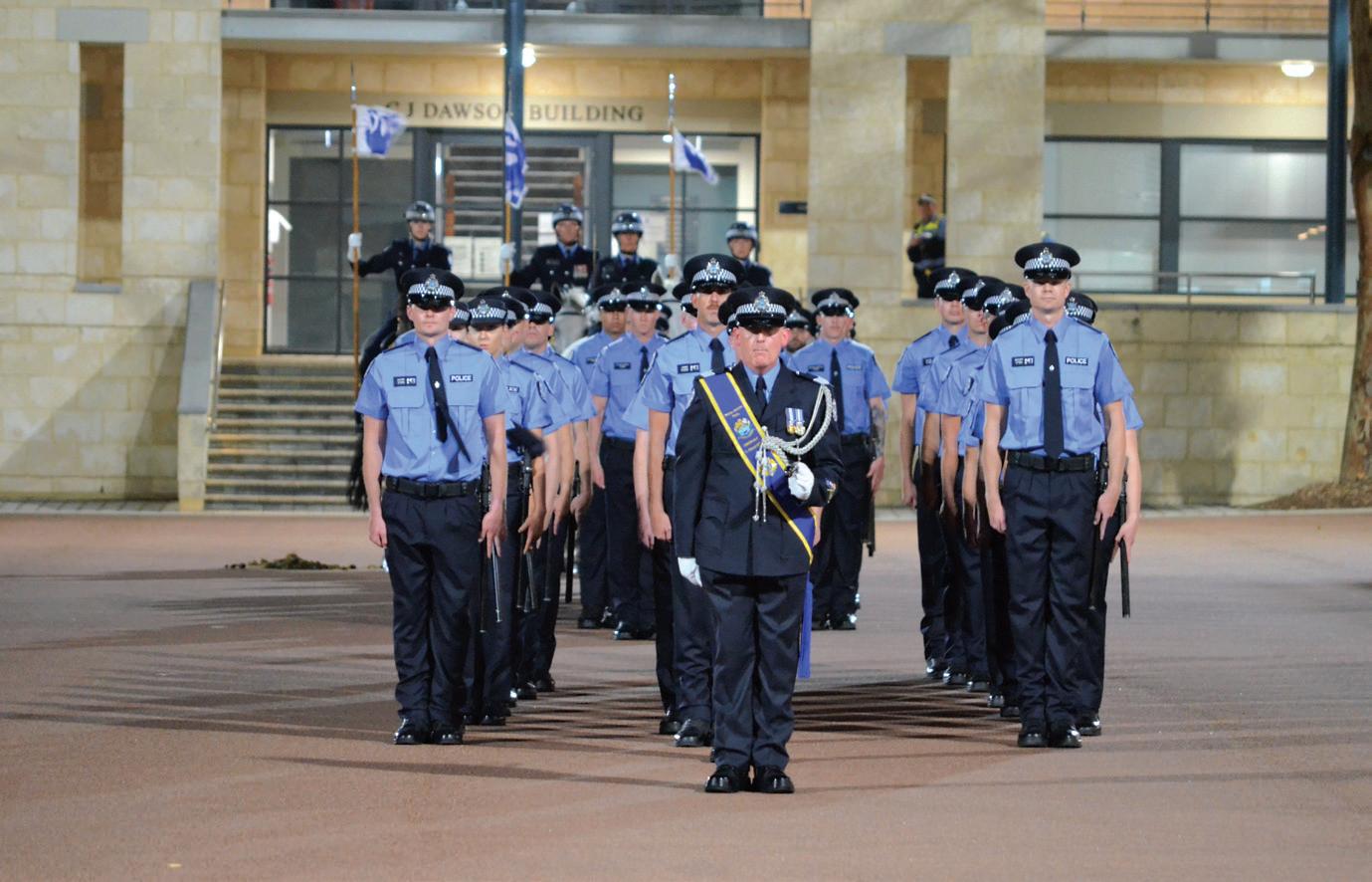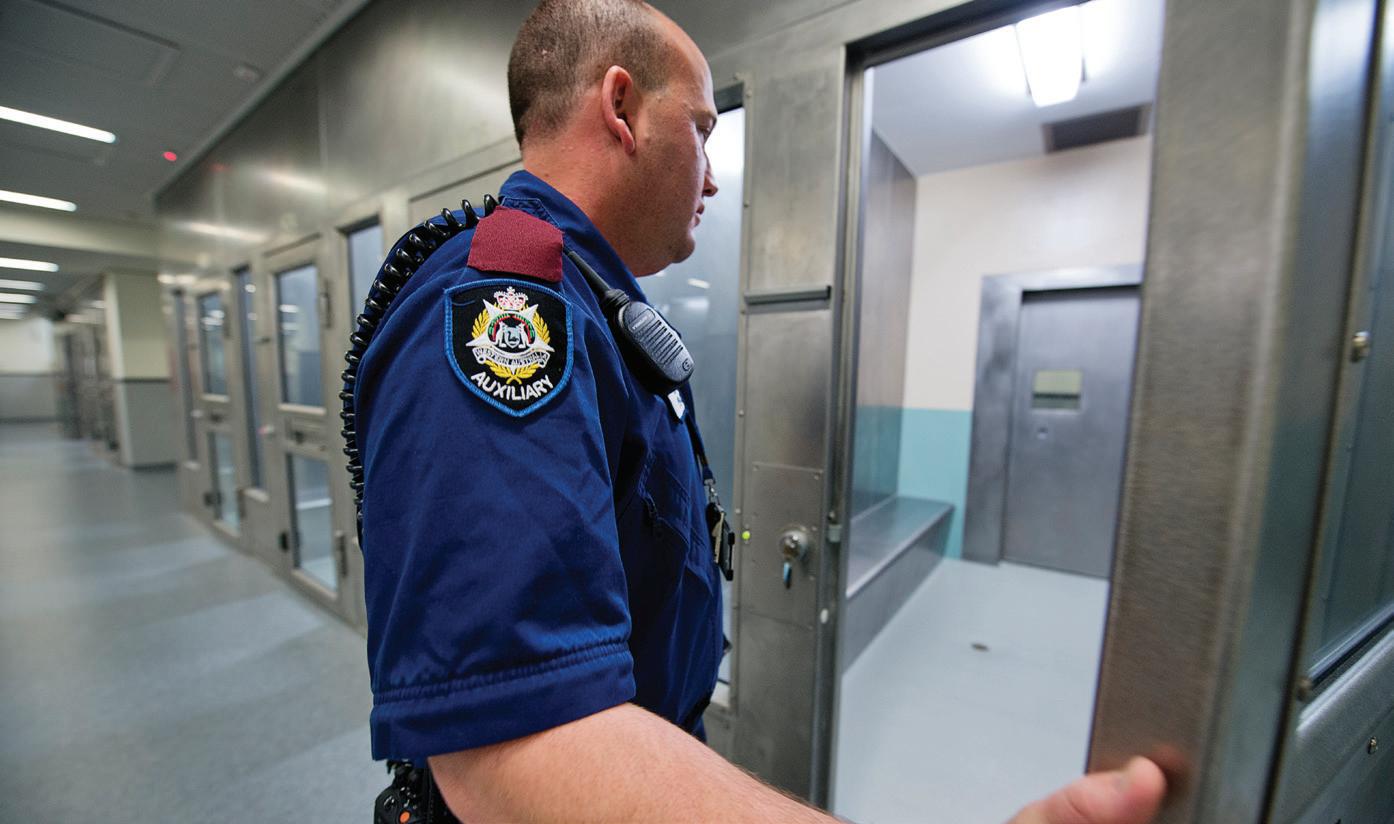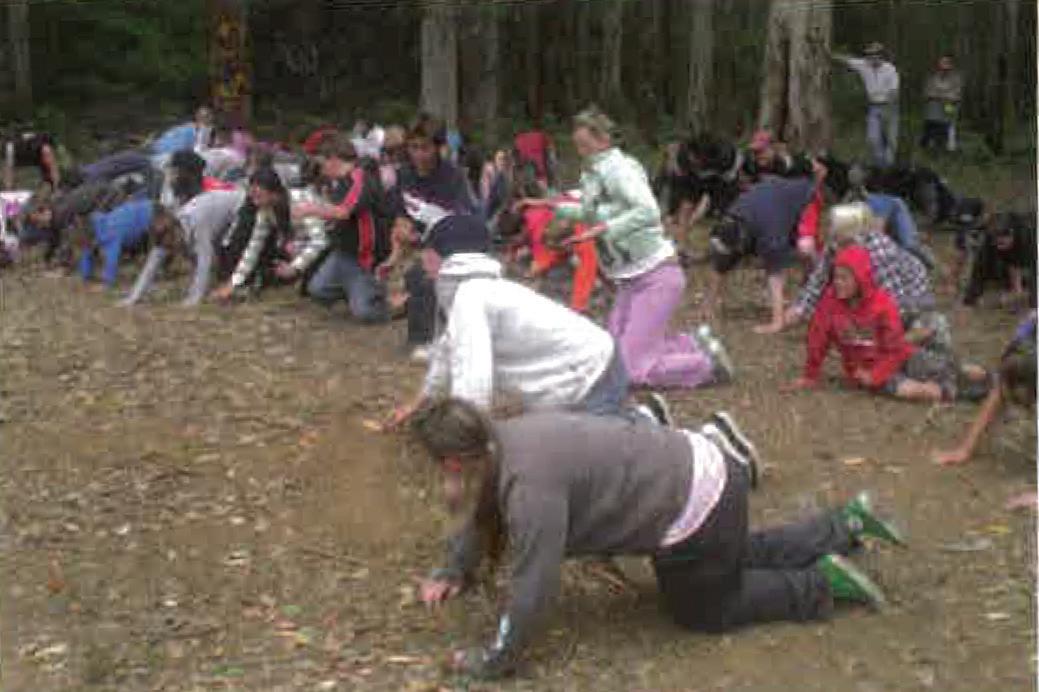
16 minute read
INDUSTRIAL REPORT
PAUL HUNT
Secretary WA Police Union
Advertisement
No loss of any current conditions a good outcome
AS MEMBERS ARE WELL AWARE, the replacement of the industrial agreement has been a two-year process to negotiate and was ultimately resolved by partial arbitration.
The Senior Commissioner handed down his decision on February 26, 2021, granting an additional two days leave for all police officers.
While the long process has been frustrating, it is disappointing that some Members see the new leave and range of increases to current conditions as a “loss”. No doubt the outcome of arbitration could have been better, and it has taken considerable argument to overcome the WA Police Force and Government’s view that police officers don’t deserve more leave at all.
When the membership rejected the Fifth and Final Offer, all of the conditions were taken off the table. Through continued negotiation all items, except for the additional leave, were agreed to be included in a new agreement, with of course, the additional leave the only issue for arbitration.
There was some controversy over the 65 per cent threshold for the ballot, which is a parameter that is prescribed in the WAPU Constitution and has been in place for more than 20 years. A motion was debated and defeated at the 2020 Annual Conference that would have seen the 65 per cent reduced to 51 per cent.
We have previously reported on the obstacles that lead to such a long delay and the attempts by the employer during drafting to dilute current conditions, reducing some of the new conditions from what had been agreed in negotiations.
When we say “no loss of any current conditions” is a good outcome it is just that considering attempts by the employer to reduce those current conditions.
The new agreement has been registered with effect from March 10, 2021 and is due to be replaced by June 30, 2021. Included in the replacement agreement are the improvements that came from the fifth and final offer, these include: • Country Deployment Allowance is expanded to all officers for relieving and operational deployment into/within Regional WA. This removes the restriction that prevented regional-based officers from accessing the allowance when reliving or deployed to other regional locations. • The Civilian and Pregnancy Clothing Allowance has been increased to $1,299 per year. • Overtime is now payable to officers who are required to return to duty on their rostered shift without a 10-hour break, or when overtime runs into their next rostered shift. In those cases, overtime rates will apply until they are released from duty. • Bereavement Leave has been increased to three days for each event. • Introduction of 10 single day sick leave absences with a certificate from a Health Practitioner, e.g. Chemist.
The five single days without a certificate are still in place, with an improvement that allows up to three of those days to be taken consecutively without a certificate. • Five days cultural Leave for Aboriginal and Torres Strait
Islander officers. • Employer Superannuation contributions on up to 12 weeks unpaid Parental Leave. • Access to pro-rata long service leave for officers nearing superannuation preservation age. • $1,000 per year pay rise back dated July 1, 2019.
The Union was fortunate to have a range of current and former serving Members across the ranks, experienced in uniform, detective, and specialist fields of policing provide evidence during the arbitration hearing. Their evidence was essential to our argument that policing is corrosive to wellbeing, unique, demanding and at times traumatic,
INDUSTRIAL REPORT
which was accepted by the Senior Commissioner who granted additional leave in acknowledgement.
What was weighed against our argument for more time off was the WA Police Force’s evidence that a number of officers hold significant leave balances, the Agency already has a comprehensive suite of wellbeing and support programs for police officers and importantly, the Government’s submissions about the forecast of a depressed State economy coming out of COVID-19.
The State Wages Policy is a millstone around the necks of all public sector workers, and still features large in the Government’s argument about controlling wages in the public sector, especially while the economy is still recovering. While much commentary and analysis indicates Western Australia is outperforming all other States and international economies, the Senior Commissioner applied caution to the economic forecasts in coming to two days leave instead of the five we had sought, both of which carry significant financial cost to the WA Police Force.
In granting the two new days of leave, the Senior Commissioner has also placed his own restrictions on the leave. These criteria were not part of any submissions by the Union, we argued for five days unconditional leave and the WA Police Force argued for no additional leave.
Since the preliminary announcement of the new clause, we have sought formal clarification of the new arrangements from the Senior Commissioner, such as the 240-hour annual leave balance. Of particular concern was the potential for officers based in the north west, who accrue 280 hours annual leave a year, being at a disadvantage. The Senior Commissioner has affirmed his decision that the appropriate balance for all officers, irrespective of location, is 240 hours.
While the two days is disappointing for some, the arbitration decision has delivered key positives for Members when it comes to future negotiations. The recognition of policing as unique and corrosive on wellbeing can now be used as solid grounds for future claims to improve conditions for police officers.
Importantly, in his decision the Senior Commissioner noted concerns with the hours of duty provisions and constraints around annual leave access, such as the long range booking of annual leave and the overriding “operational requirements” barrier to accessing leave. He has made suggestions for improvements in the next industrial agreement, which include: • give work/life balance higher consideration in roster development; • place a focus on using annual leave rather than significant accumulation; and • quarantine a portion of annual leave for more flexible access without operational requirements being the greatest barrier.
We are now preparing the claim list for the new agreement and will commence negotiations with WA Police Force in the coming weeks.
Left to right: First Class Constable Julian Jennings, Sergeant Michael Paterson and First Class Constable Jake Hendry.
COMMUNITYMINDED TEAM FIGHTING FOR THE PEOPLE OF LANCELIN BY STEVEN GLOVER
Devastating bushfires have captured the attention of West Australians in the early part of 2021 – the year many had been holding out hope for a return to normal programming following COVID-19’s decimation of 2020.
Crews of career and volunteer firefighters have been heroically saving properties and lives across the State and while the Wooroloo bushfire has been the most savage, the first bushfire emergency of the year began in Red Gully, near Lancelin.
For nearly 10 days, the bushfire burnt more than 10,000 hectares and had a perimeter of 136km. It took 600 career and volunteer firefighters and a couple of water bombers to bring it under control after it threatened to wipe out the communities of Seaview Estate, Ocean Farms and even Wedge Island.
For the local police at Lancelin Police Station, this blaze saw them heavily involved in more ways than one.
While Officer in Charge Sergeant Michael Paterson managed the police response at the bushfire incident control post, the other officers were stationed at vehicle control points and assisted with evacuation of Seaview and Ocean Farms estates when it appeared they were in the crosshairs of the blaze.
“There was concern the fire was going to hit those two estates and take out quite a few houses and there was a risk to life and property,” Sgt Paterson told Police News.
“If the fire had got into those estates, it would most likely have jumped Indian Ocean Drive and into the Lancelin Defence Training Area, which was indefensible, and had it got in there Wedge Island would have been under significant threat.”
Sgt Paterson said the hard work of the firefighters and the fire retardant deployed from above kept damage to property at a minimum. “Stresses were high. Not knowing or only getting half an odd ear of what was going on and trying to sort of get an appreciation of how big it was and what I could do one, as a copper, and two, if I do get the call, as a firey.”
One of those firefighters working to contain the blaze was Lancelin First Class Constable Jake Hendry who along with First Class Constable Julian Jennings are members of the local volunteer fire brigade.
In between policing duties at the control post and the vehicle control points, First Class Constable Hendry completed shifts for the volunteer firefighters.
While he worked long hours, his commitment to the local community and helping to save property and life got him through.
“You kind of will yourself that you are helping people and making a difference and potentially saving lives and properties,” he said.
“There are days where I have knocked back stuff with the firies. There was a couple during Red Gully where I was up too long and I had to knock stuff back because if you keep going on limited sleep, you are kind of putting everybody else’s safety at risk if you are not 100 per cent.” ▷
01 02


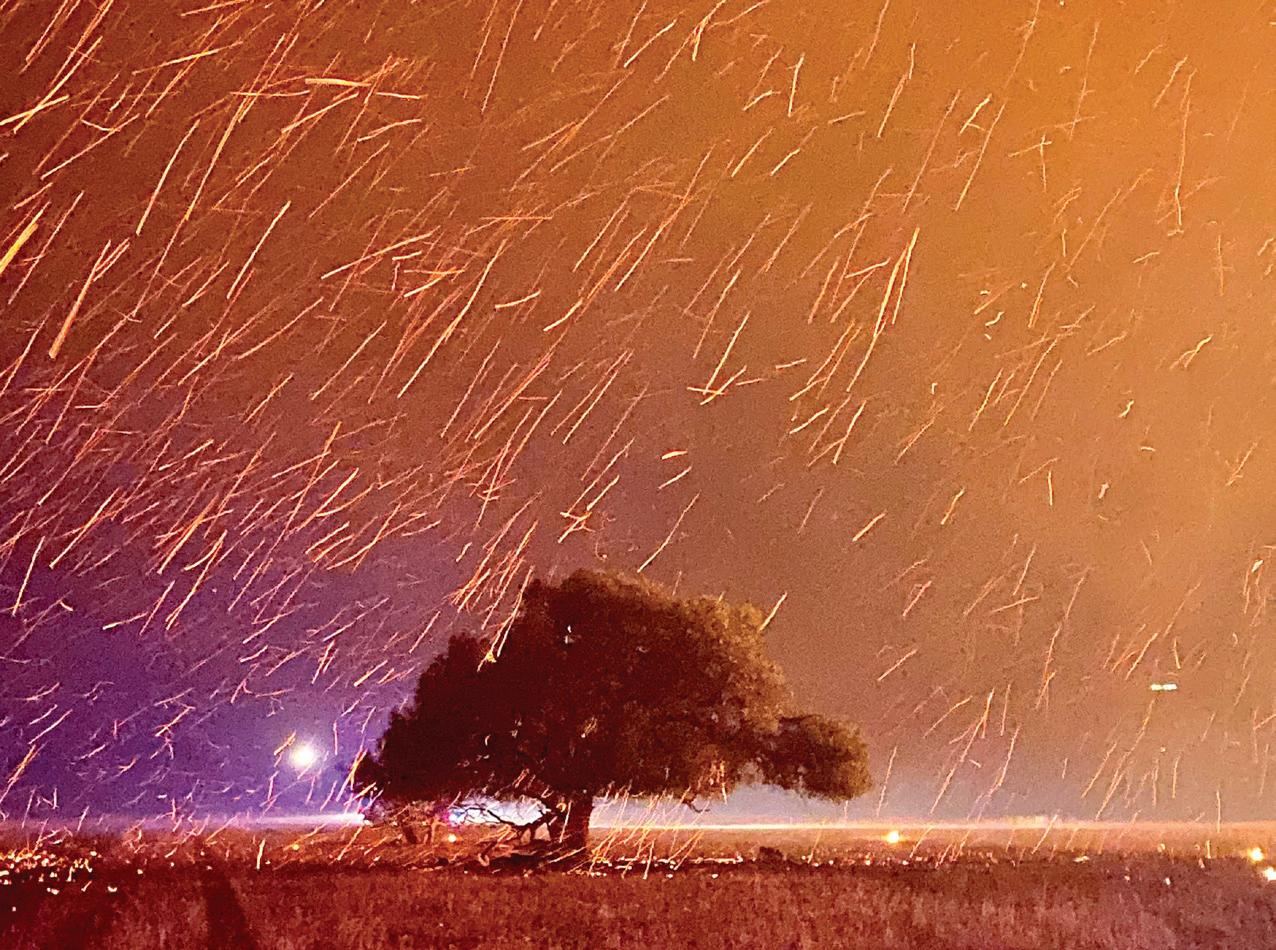
03
First Class Constable Hendry described the Red Gully blaze as massive.
“Had it not been for the aircrafts dropping the retardant that fire would have absolutely ripped through our community out near Ocean Farms and Seaview. At one point, they said there was an hour to the impact of those communities and you are sitting there, watching and waiting for it to come.”
First Class Constable Jennings worked predominantly as a police officer during the Red Gully blaze however, he was on standby if the firefighters needed more help.
“It was touch and go because it was very dynamic in the sense of that we had two estates under direct threat,” he said.
“Stresses were high. Not knowing or only getting half an odd ear of what was going on and trying to sort of get an appreciation of how big it was and what I could do one, as a copper, and two, if I do get the call, as a firey.”
Luckily, those same aircraft who curtailed the Wooroloo fires were able to do the same in Lancelin and stop the fire in its tracks.
But the volunteer work did not stop there for the team at Lancelin.
First Class Constable Hendry, in between his police work, was able to complete a shift helping save properties in Gidgegannup. He spent 12 hours fighting fires only metres away from him and properties on O’Brien Road in Gidgegannup.
“We were driving along the road with flames either side of the road,” he said.
“We were there protecting properties because there was a number of properties on those roads and the fire was literally coming straight for them.
“We were sitting, watching and waiting for this head fire that you know is coming to these properties and it is kind of surreal. It’s coming and you’ve got to put this out otherwise these properties are going to get destroyed.
“It is frightening at times especially out there with the wind change and how often the wind changes. You think the fire is coming one way and then the next minute it is coming from the complete opposite direction and you are not prepared for it.”
Sgt Paterson said he was proud his team has a very strong relationship with the Lancelin community and the other emergency services.
“I’ve got two officers who are not only volunteer firefighters and marine rescue officers but they are also coppers so they were both able to manage their fatigue and their police duties and firefighting work and able to do bits of everything,” he said.
“We’ve got SJA, DFES and marine rescue volunteers here and some of our officers are members of all three of those as well as the police. We’ve got good relationships so when our firies or ambos are at jobs and they need police assistance you want to get out and help them.
“They are the same people that we hang out with and are mates with every day around town.
“If our people aren’t helping with their police hats on, often they are helping out with their other hats on. It makes the whole process of emergency management work much better when everybody knows each other and has good relationships with each other and communicates well with each other and to help each other out.”
First Class Constable Jennings said sometimes it can be difficult to manage his different roles but he was committed to helping the local community.
“We had a serious crash on the weekend where I was on duty anyway so I had to go in police uniform but then Jake on the other hand was off duty so, he went out with the VRFS,” he said.
“Juggling is not too bad but obviously when there are police jobs or police involvement, I will be doing the majority of it with us. If I am on leave or have the ability to go out with the VRFS then I will.
“I don’t find it super fatiguing but when the big jobs are on you do, that’s for sure.”
So why do these police officers help by volunteering in the local community? The answer is simple, they want to and they want to feel part of the community.
“I wanted to help the community more and get an understanding of other emergency services and an appreciation of what we can offer them and what they can offer us. I wanted to give back to the community and see the community from another aspect,” First Class Constable Jennings said.
For First Class Constable Jennings, who first joined the volunteer fire brigade in Wagin, the chance to join the Lancelin volunteer fire brigade in June last year provided him the perfect opportunity to meet people in the town.
“When I came to Lancelin, the sport because of COVID wasn’t existing so with the firies I could get involved in the town that way. Normally, I would play football, play cricket.
“Being a firey is a good way of connecting to the local community not only just as a copper but others see you then as a volunteer firey and I guess then you are not always seen as a copper in the town, you are also seen as being a member of the community.
“The amount of people that I have met along the way has just been awesome. People get you more involved in the town as well because they have been there for years and years so getting a local supporting you, spreading the word about your good work ethic and being a good person, you become more involved in the town quite quickly.
“I still have a lot of really good friends down in Wagin. I’ll be looking at going back as a copper but I still get invited back to social events and those sorts of things which is quite humbling to be honest.”
Like First Class Constable Jennings, First Class Constable Hendry also had previous volunteer fire brigade experience in Mullewa before arriving in Lancelin.
He said joining the fire brigade in Mullewa helped him feel a part of the community which benefitted him during his first post in regional WA.
“Obviously being police and firies, you are often turning out to the same jobs so it helped being able to go as a police officer and if there firies are a few crew members down, it’s easy just to jump across and help them out,” he said.
“There was a house fire in Mullewa and I went to do traffic management and they were a few crew members down so I just jumped on a hose.”
And if fighting fires and being a copper was not enough, First Class Constable Hendry is also the Central Midlands Branch President for the WA Police Union.

04
Prior to that, he was Branch President of Murchison Branch and at the recent WAPU Annual Conference in November, he received his five-year service pin.
“It’s tough being a Branch President here because all our stations are over 100km apart, so to try and organise a meeting is a bit difficult,” he said.
“But it is a good Branch to run and everyone is quite heavily involved.”
First Class Constable Hendry said being involved in the Branch provided him opportunities to engage with fellow Members at other stations.
“If I wasn’t involved with the Union as Branch President, I probably wouldn’t really know the officers at Dalwallinu, Moora or Gingin.
“Gingin we work a bit with but Moora and Dalwallinu we don’t have a lot to do with but as Branch President you have to get to know everyone.”
Sgt Paterson said he hoped his team’s strong relationships with the community would continue even though there are going to be some vacancies in the next few months.
“We have a really great team here, very solid relationships with the other emergency service teams and a really close relationship with the community,” he said.
“If people are looking for a move to the bush which is still quite close to the city, Lancelin is going to have some vacancies advertised this year. We are that close to Perth that even Woolworths deliver groceries out here.
“Although there are not the financial attractions in Lancelin, there is extremely good GROH housing, it is only an hour drive from the city and we’ve got a pretty good roster of days and afternoon shifts. If you love the outdoors there is plenty to do outside of work like surfing, fishing and four-wheel driving. “Lancelin is a tight knit community and I have loved being a part of it since moving over from Merredin last year.” ■
01 – 03 Images from the Red Gully blaze. Photos: Nikki's Photography. 04 First Class Constable Jake Hendry and First Class Constable Julian Jennings.

